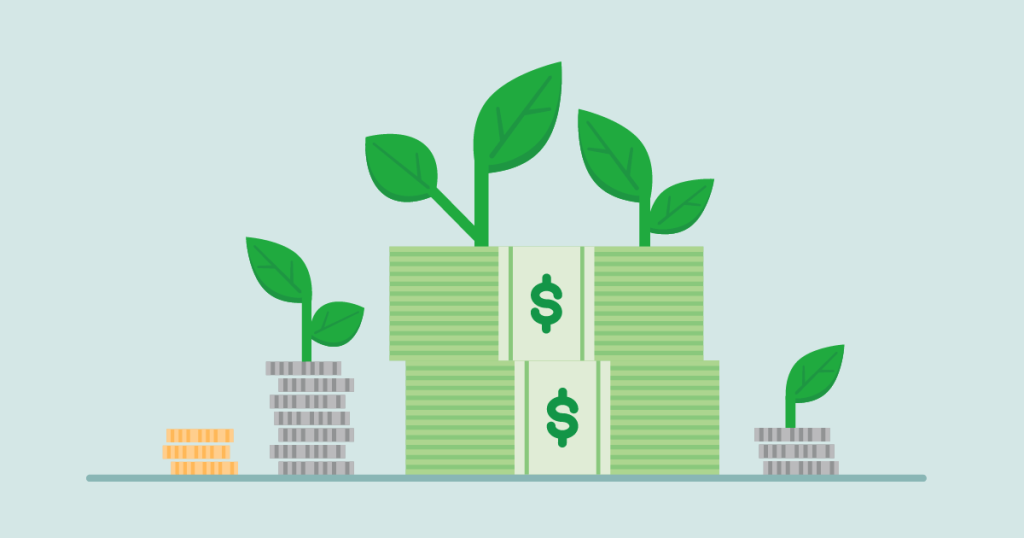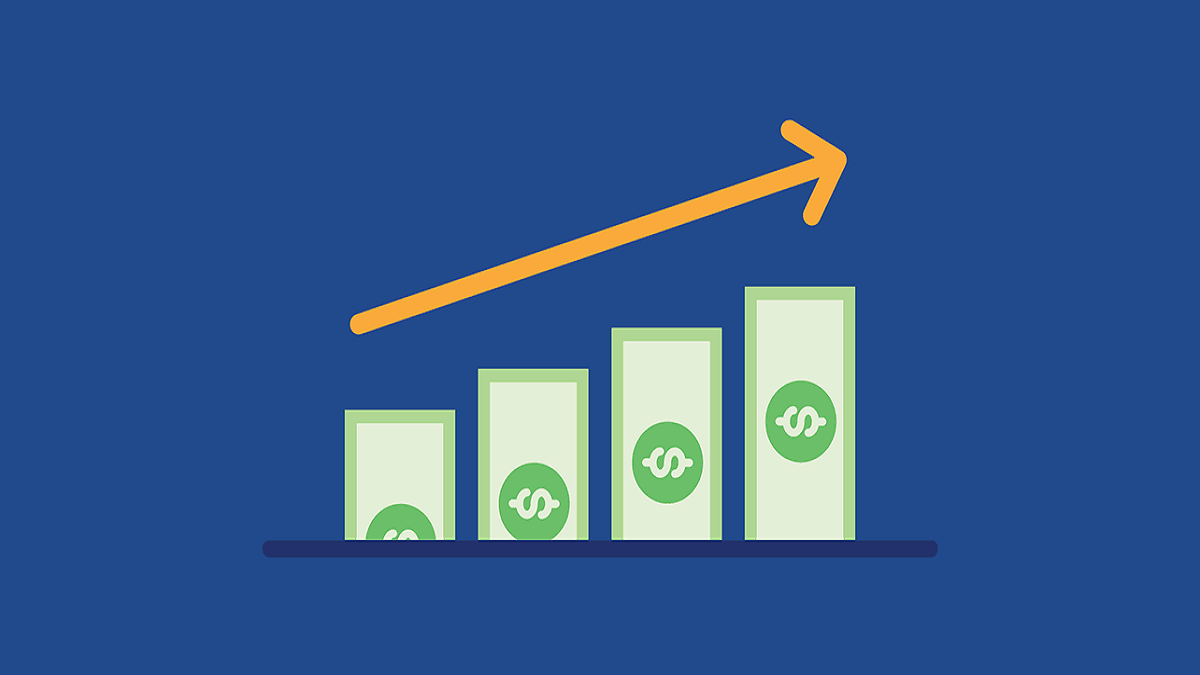Numerous studies have revealed that the majority of people, especially when it comes to their retirement years, are unable to exhibit financial stability. This just serves to highlight how difficult it is to achieve financial stability and how meticulous preparation and Steps to Building a Financial Security are necessary.
To be sure, various individuals have varied definitions of financial stability. To put it simply, financial security is the ability to pay for living expenses, unexpected costs, and retirement without worrying about running out of money.
Steps Towards Financial Security

1. Commence As Soon As Possible
One of the Steps to Building a Financial Security is starting as early as you can. It goes without saying that it is best to begin saving as soon as possible, but even if you are getting near retirement, it is never too late to begin since every dollar you save goes toward paying for your costs.
A person who saves $200 a month at a 5% interest rate for 40 years would have saved a lot more than someone who saves the same amount for 10 years. On the other hand, the money saved over a shorter period may be very helpful in supporting retirement expenditures.
Additionally, bear in mind that as you approach retirement, other aspects of financial planning, such as asset allocation, will take on more significance. This is because your risk tolerance often declines with the length of years that you have to recover any losses.
2. Understand Your Net Worth
Calculating your assets and liabilities is essential to get a complete insight into your financial situation. You may get a more precise and comprehensive view of your whole financial situation by comparing the value of your assets against your obligations. You will be able to make wise choices and take the necessary steps to enhance your financial well-being thanks to this examination.
3. Say Goodbye To Credit Cards
Saying goodbye to your credit cards is one of the Ways to Building a Secure Financial Future. Could you picture paying a credit card company precisely zero dollars when you wake up tomorrow? That may very well be you in the future if you cancel your credit cards now. The benefits are the main justification I hear for retaining credit cards. Yes, consumers like the points on their credit cards.
Manipulative credit card firms have done a superb job of ingraining this idea into our heads with rewards programs like cash back and airline miles. However, I’ve never come across a rich individual who claimed that their credit card points were the key to their success. Using credit cards won’t provide you with financial stability. They will lead you on the wrong path.
Consider all of the additional cash you are using to “earn” those airline points. Individuals who adopt a “buy now, pay later” mindset tend to overspend when it comes to their finances. And that’s before the interest begins to grow. Other than credit card points, do you know of any other way to book travel and lodging?
You people just get a great deal of debt, anxiety, and tension from using credit cards. The sporadic benefits, airline miles, and complimentary pizzas offered by credit card companies aren’t worth incurring exorbitant interest rates and jeopardizing your financial security.
4. Decide Your Financial Goals
Achieving your financial goals and navigating different life phases effectively depend on effective financial planning. Financial planning is a crucial tool for anybody hoping to achieve their goals and enjoy a secure financial life, despite the common belief that it is only beneficial for the wealthy or those in certain stages of life.
It is essential to regularly review and modify your financial plan to make sure you are moving closer to your objectives. It’s critical to keep an eye on the deadlines linked to each objective, carry out research, and determine the approximate expenses involved in pursuing and completing them. Setting objectives is just one aspect of financial planning; you also need to allocate the money from your income that will be needed to achieve your goals.
Those who lack financial literacy sometimes make investments in get-rich-quick scams. Consulting with a financial adviser may help you understand some financial concepts and provide individualized counsel if you ever feel confused or overwhelmed by them. Regular reviews and adjustments are essential to a successful financial strategy. Taking control of your money at any age may enable you to achieve your goals and protect your future.
5. Maintain Your Accounts Tax-Deferred
Making predetermined contributions to a tax-deferred retirement account discourages you from splurging with money meant for retirement since you may incur fines and taxes.
For example, any distribution from a conventional retirement plan may be liable to income taxes in the year it is made, and if you are younger than 59, you may also be assessed an early distribution penalty (excise tax) of 10% on the amount released.
If your income is sufficient, think about increasing the amount you set aside in tax-advantaged accounts. Consider if you can afford to contribute to an individual retirement account (IRA) in addition to investing in an employer-sponsored retirement plan. You should also consider whether the IRA should be a standard or a Roth IRA.
6. Create an Emergency Fund
Nothing compares to having an emergency fund as Steps to Building a Financial Security and peace of mind. You should prepare for crises since they will occur and having an emergency fund will be your safety net in case they do. The first step to financial stability is putting some money in the bank since it’s difficult to become financially secure if you continuously incur debt due to crises.
When their automobile breaks down, far too many individuals rush for their credit card, which just makes the situation worse and escalates it into a financial one. Compound interest then causes the financial issue to worsen, resulting in mounting debt, anxiety, and stress. Nevertheless, you may easily have the automobile restored if you have genuine money set up in the bank for emergencies. No strain, no fuss.
Building up an emergency fund might be challenging at times, but if you give it your best attention, it will eventually happen. Start with the $1,000 basic emergency fund. Smaller crises will be covered by this as you pay off debt. You should use your emergency fund to cover three to six months’ worth of costs once you’ve paid off your debt.
7. Plan For Retirement
It could be too far for some people to plan. However, you might become financially independent sooner if you start saving for retirement early. This is because profits and savings may be amassed and continually reinvested over an extended period. It is advised that office workers contribute as much to their company’s provident fund as is permitted.
For your maximum advantage, it is preferable to transfer this money with you if you move to a different employer rather than taking it out before retirement. Another intriguing retirement savings option is pension insurance, which ensures a consistent fixed income upon retirement. Additionally, you are eligible for a personal income tax deduction. It is the best Steps To Building A Financial Security.
8. Settle Your Debts
Settling your debts is one of the Ways to Building a Secure Financial Future. Your income is the most important instrument for accumulating money. However, debt drains your money, and it is plain irritating to have to make all those payments each month. It’s now necessary to permanently get rid of debt.
The debt snowball method is the most effective technique to pay off debt. This is how it operates:
- Sort all of your debts (not just your home) by balance, not the interest rate, and list them from least to greatest.
- Make the bare minimum payments on all other debts and prioritize paying off the lowest one first. You must get enraged about this debt. Take all the money you have and apply it to the debt that is the least on the list.
- After it is settled, use the money you were paying toward that obligation to the next-smallest loan, and so on, until you have no debt.
Since it deals with the root of the issue, this is the most efficient method of debt repayment. Money is about more than just arithmetic and interest rates; it’s also about how you handle it. Therefore, you may win quickly by paying off the lowest debt first. And don’t we all adore that?
Put your $300 credit card debt from the department shop on the list and pay it off. Once you’ve finished, mark it as completed on the list and go on to the next. Throughout this process, quick victories keep you motivated and prepare you for the task of paying off larger debts. And having no debt leads to real financial stability after that.
9. Live on Less Than You Earn
Using your salary as your primary wealth-building instrument is essential if you want to achieve financial stability. Therefore, the greatest place to start when looking for money is your paycheck, whether you’re attempting to pay off debt, save for emergencies, or invest for the future.
How can you increase the amount of money you take home? Use it more sparingly! You will repeatedly get into difficulties if you want instant satisfaction. You will be in a more solid financial situation than you have ever been in if you can learn to say no to yourself and accept what you already have.
No more late payments. Paycheck-to-paycheck life is over. Don’t waste money trying to win over someone you don’t even like. Recall that little sacrifices made now will pay handsomely later. Decide what your ultimate objective is, then pursue it.
Final Thoughts
Achieving financial stability by taking Steps to Building a Financial Security and accumulating money is a long-term process that calls for perseverance, dedication, and constant work.
To get individualized counsel and professional advice tailored to your unique financial objectives and circumstances, it is strongly advised that you speak with a reputable financial adviser. It entails keeping a close eye on your earnings, outlays, and assets, in addition to taking the constantly shifting financial scene into account.
You may consciously move toward a more secure financial future by putting tried-and-true methods like budgeting, saving, and prudent investment into practice. You are laying the groundwork for a better, more affluent future with every little thing you do now. Remain steadfast and focused, and let your financial path serve as an example of your fortitude and tenacity.
FAQ
Q: What is the required amount of money for financial security?
A: That is contingent upon your age, your level of income, and your financial goals. However, the “4% rule” is a useful indicator of financial stability in general. Stated differently, you may certainly consider yourself financially secure if you can remove 4% of your annual account balance from your investment accounts without experiencing financial difficulties.
Q: What distinguishes financial stability from financial security?
A: Financial stability, in general, is the capacity to pay monthly bills comfortably and without incurring debt, with enough money left over for savings. Conversely, having enough money to meet bills, unexpected costs, and retirement without worrying about running out is what’s meant by financial security.
Q: Why is financial security a source of fear?
A: Although everyone has some financial worries, financial anxiety is distinct. An intense and sometimes crippling dread of all things financial is known as financial anxiety. There are many more factors than just not having enough money that may cause financial concern.











